Bulgaria << buhl GAIR ee uh >> is a country on the Balkan Peninsula of southeastern Europe. It is bordered by Romania on the north, Serbia and North Macedonia on the west, Greece and Turkey on the south, and the Black Sea on the east. Mountains cover most of Bulgaria. Fertile valleys and plains separate the mountains in a large number of areas.
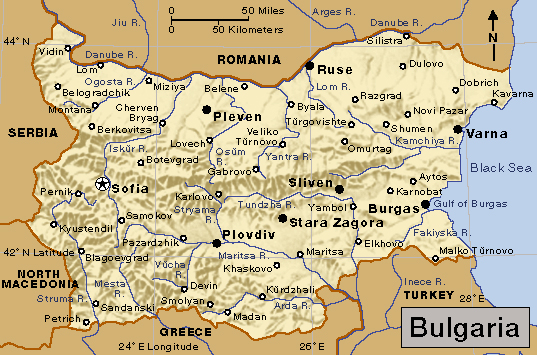
Until the late 1940’s, a majority of Bulgarians lived in rural areas and worked on farms. Today, most of Bulgaria’s people live in cities. Many work in such industries as food processing and production of metal goods. Sofia is the capital and largest city of Bulgaria.
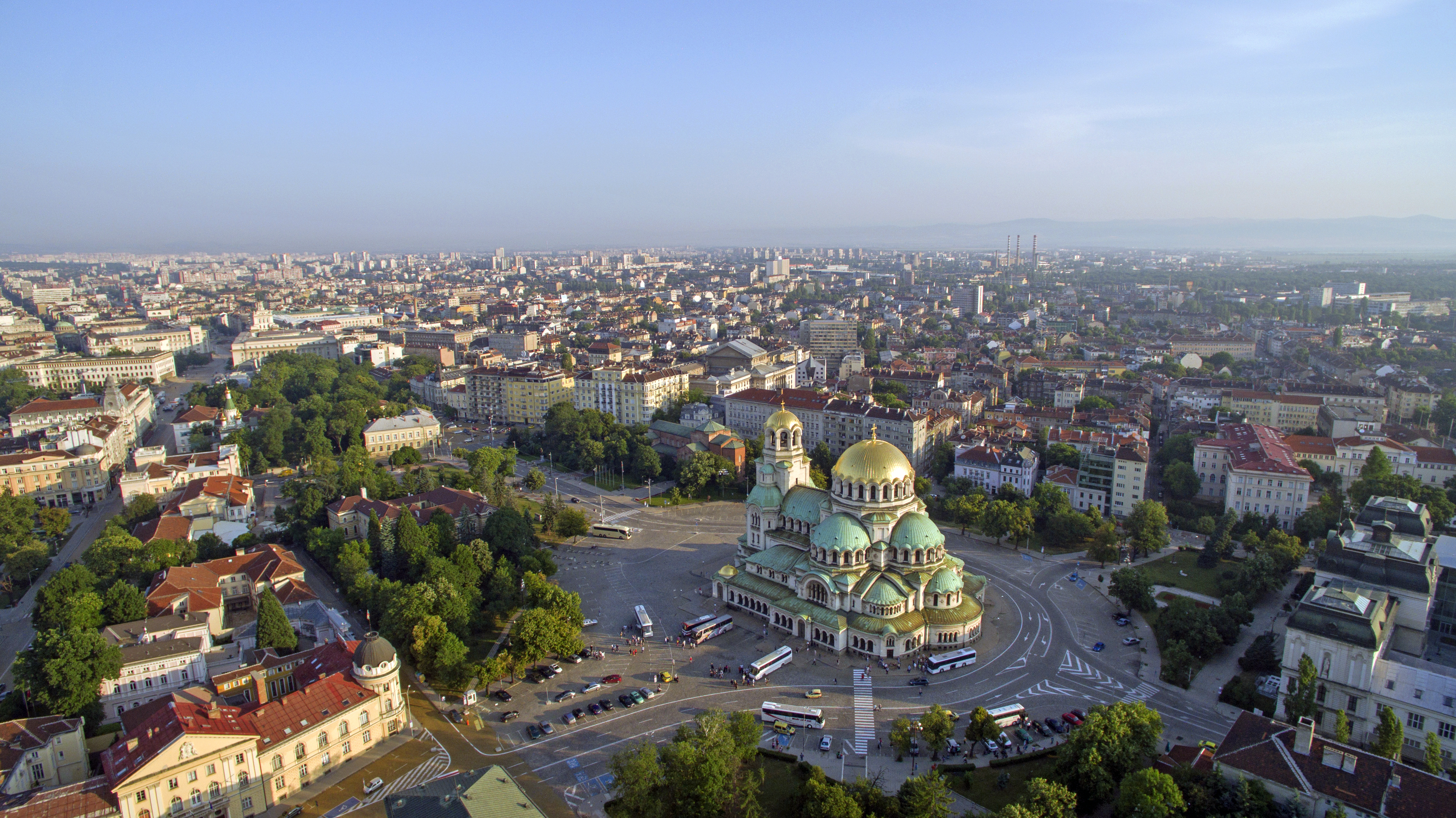
About 3,000 years ago, a people called the Thracians established the first civilization in what is now Bulgaria. The region became part of the Roman Empire during the A.D. 40’s. Between the late 600’s and the mid-1300’s, Bulgaria twice ruled a powerful kingdom that covered most of the Balkan Peninsula. In the late 1300’s, the Ottoman Empire conquered the country. Russia helped Bulgaria gain freedom from Ottoman rule in 1878. The country became fully independent in 1908.
Government
Bulgaria came under Communist rule in 1946. The Bulgarian Communist Party took control of the government. Political parties that opposed the Communist Party were outlawed. The party and government together gained almost total control over the economy. The party also attempted to control all social aspects of life, such as religion and entertainment. It placed strict restrictions on such basic rights as freedom of speech.
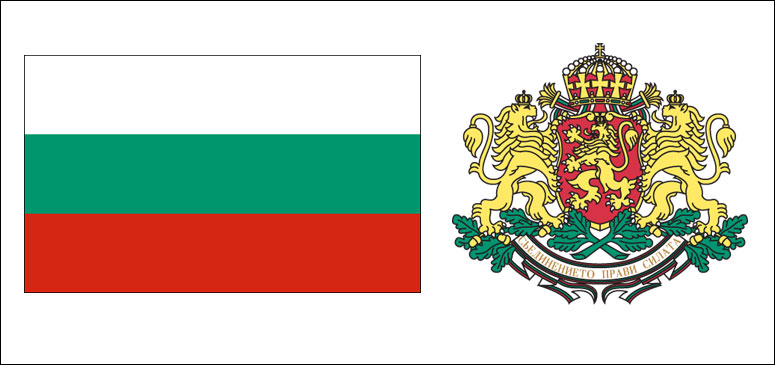
Bulgaria's national anthem
In the late 1980’s, the Soviet Union, which was then the world’s most powerful Communist country, made reforms resulting in more freedom for its people. Reform movements then increased in Bulgaria and other European Communist countries. In December 1989, Communists who favored reforms gained control of Bulgaria’s Communist Party and the government. They began taking steps to end the party’s complete control of the government. Opposition parties were allowed to operate. The Communist Party changed its name to the Bulgarian Socialist Party.
National government.
The National Assembly is Bulgaria’s legislative body. Its 240 members are elected by the people to a four-year term. The political party that has a majority of seats in the National Assembly chooses a prime minister, who is Bulgaria’s most powerful government official. The prime minister heads a cabinet, called the Council of Ministers, which carries out operations of the government. The voters elect a president to a five-year term. The president is commander in chief of the armed forces and has legal and administrative duties. All Bulgarians 18 years of age or older may vote.
Local government.
Bulgaria is divided into 28 provinces. One city, Sofia, ranks as a province. Each province is headed by a governor appointed by the national government. Below the provincial level of government are hundreds of municipalities. Each municipality is governed by an elected council.
Courts.
Bulgaria has two supreme courts. The Supreme Court of Cassation hears appeals in civil and criminal cases, and the Supreme Administrative Court hears appeals of government decisions. Lower courts include district, regional, and appeals courts. The military has its own courts. Judges and prosecutors are appointed by a Supreme Judicial Council. The council is made up mainly of lawyers chosen by the National Assembly and by the bodies of the judiciary.
Armed forces.
Bulgaria has an army, air force, and navy. Service in the armed forces is voluntary.
People
Ancestry.
About 85 percent of the people of Bulgaria are of Bulgarian ancestry. They are descended from Slavs, who settled the region in the 500’s, and Bulgars, who arrived in the 600’s. The Slavs came from what are now southeastern Poland and northwestern Ukraine. The Bulgars were a nomadic Asian people.
People of Turkish ancestry make up about 10 percent of the population of Bulgaria. In 1984 and 1985, Bulgarian authorities forced the Turks to adopt Bulgarian names. Some of the people who refused to change their names were killed by Bulgarian troops. Others were forced to leave the country. In December 1989, Bulgaria’s reform government ended this policy and granted equal rights to ethnic Turks. Other minority groups in Bulgaria include Armenians, Greeks, Roma (sometimes called Gypsies), Romanians, and Russians.
Way of life.
Before Communist rule began in 1946, most Bulgarians lived in rural areas, where poverty was widespread. After the Communists came to power, the government began to industrialize Bulgaria. Many people then moved to cities to work in factories.
Today, a majority of Bulgaria’s people live in urban areas. Although living conditions have improved in the country, Bulgaria still has one of the lowest standards of living in Europe.
Most of Bulgaria’s city workers are employed by factories and businesses. About 80 percent of all Bulgarian women work outside the home. They make up nearly half the total work force. Wages are low, and jobs are scarce. Shortages of housing, food, and basic goods keep prices high. Most city dwellers live in apartments that lack many of the comforts common in Western countries. Few people can afford a car, but many Bulgarians own a television and a radio. Many goods sold in Bulgaria are of poor quality.
In rural areas, most people work on farms. Most rural people live in simple houses that, in many cases, lack such conveniences as central heating and plumbing. The government has improved conditions by building paved roads and providing electric power and telephone service in many rural communities.
Recreation and food.
Bulgarians enjoy informal gatherings with friends or relatives. They also like walking. Movies, books, music, and dance styles from Western countries are popular, especially with young people. Sporting events, particularly soccer matches, attract many spectators. Many vacationing Bulgarians flock to the Black Sea coast to enjoy the mild weather and the beautiful beaches. 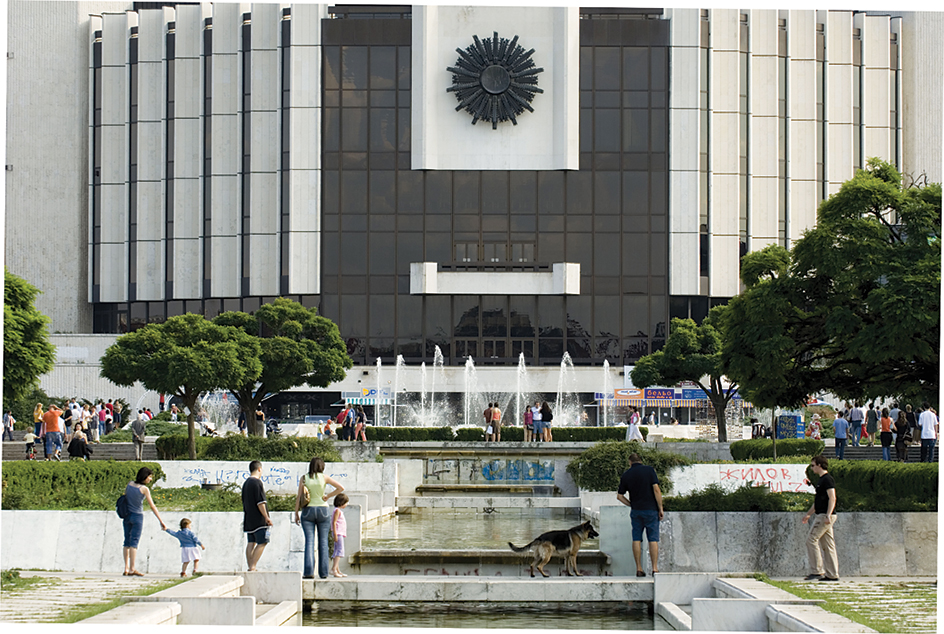
Bulgarians enjoy simple stews and other dishes that contain lamb, pork, or beef. Yogurt is a popular part of their diet. Strong plum brandy is a favorite alcoholic drink.
Language.
Bulgarian, the official language of Bulgaria, is spoken by most of the people. Bulgarian is closely related to Russian and other Slavic languages and is written in the Cyrillic alphabet (see Alphabet (Other alphabets)).
Education.
Almost all Bulgarians aged 15 or older can read and write. For the country’s literacy rate, see Literacy (table: Literacy rates). The government operates most schools in Bulgaria. Children are required to attend eight years of elementary school. They study such subjects as history, literature, mathematics, and art. Nearly all students go on to high school. Bulgaria has about 25 institutions of higher education.
The arts.
The golden age of Bulgarian arts occurred in the 800’s and 900’s, when Bulgarian artists and craftworkers created magnificent Byzantine churches, paintings, and religious objects (see Byzantine art). Bulgarian literature flourished in the 1000’s. The Ottoman Empire conquered the country in the late 1300’s. The arts then declined. Ottoman rule of Bulgaria weakened in the 1800’s, and the country’s culture began to revive. Two of Bulgaria’s finest authors of the 1800’s were the poet Khristo Botev and the novelist Ivan Vazov. Botev’s fiery works called for freedom from Ottoman rule. Vazov vividly described the people’s suffering under the Ottomans. After the Communist Party came to power, the government strictly controlled artistic expression. But since the reform government came to power in 1989, restrictions on the arts have been lifted.
Bulgaria is known for its performing arts, especially music. Several opera singers, including Boris Christoff and Nikolai Ghiaourov, have won international fame. Loading the player...
Bulgarian folk dance
Religion.
After the Communist Party came to power, the government discouraged religion and supervised religious practice. But in 1989, the reform government affirmed the rights of all citizens to practice their religion. Most of the people are members of the Bulgarian Orthodox Church, one of the Eastern Orthodox Churches (see Eastern Orthodox Churches). Other religious groups include Muslims, Protestants, and Roman Catholics.
The land
Bulgaria has four main land regions. They are (1) the Danubian Plateau, (2) the Balkan Mountains, (3) the Transitional Mountains and Lowlands, and (4) the Rhodope Mountains.
The Danubian Plateau
covers northern Bulgaria from the Danube River south to the Balkan Mountains. Several Bulgarian rivers, including the Iskur and the Yantra, flow into the Danube. The Danubian Plateau has the country’s most fertile farmland.
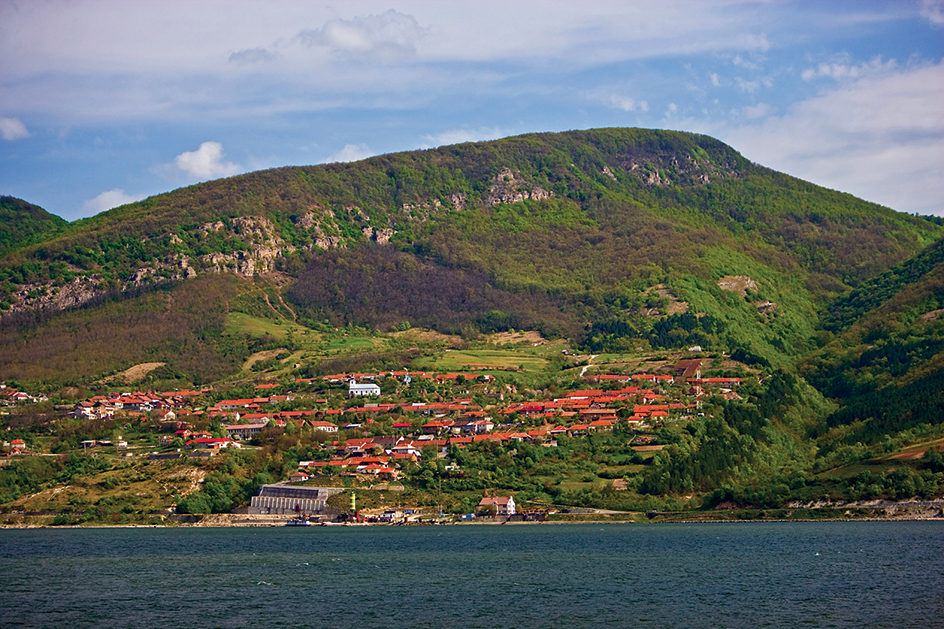
The Balkan Mountains
cross Bulgaria from west to east. Botev Peak, which rises 7,795 feet (2,376 meters), is the tallest mountain in the range.
The Transitional Mountains and Lowlands
lie south of the Balkan Mountains, between the Black Sea on the east and the Rhodope Mountains on the west and south. Farmers raise many fruits and vegetables in the region’s Maritsa and Tundzha river valleys.
The Rhodope Mountains
lie in southernmost Bulgaria. The country’s highest point, Musala Peak, rises 9,596 feet (2,925 meters) above sea level in the range.
Climate
Bulgaria’s climate varies from region to region because of differences in the terrain. In January, the average temperatures in the country range from 35 °F (2 °C) near the Black Sea to 0 °F (–17 °C) in central Bulgaria. In July, the average temperature is 75 °F (24 °C) throughout most of the country. The summers are humid in northern Bulgaria and dry in southern Bulgaria.
The average yearly precipitation in Bulgaria is 25 inches (63 centimeters). But mountain areas usually get more than 40 inches (100 centimeters) yearly. Snowfall is generally light except in the mountains.
Economy
Bulgaria is a developing country. Under Communist rule, its economy was based on government ownership of factories, mines, most farmland, and other resources used for production. Poor management and shortages of fuel and skilled labor slowed economic growth. After the reform government came to power in 1989, it redistributed much of the land in the large government-owned farms to private owners. It also began to sell state-owned companies to private owners.
Today, Bulgaria is one of the poorest countries in the European Union. Many Bulgarians live in poverty. Bulgaria receives financial aid from the European Bank for Reconstruction and Development. Founded in 1990, this bank was designed to help rebuild the economies of Eastern European countries.
Manufacturing, mining, and energy production
account for about a fourth of Bulgaria’s employment. They also account for about a fourth of the country’s gross domestic product (GDP)—that is, the total value of goods and services produced in a country in one year. Important manufacturing industries make chemicals, processed foods, metal products, machinery, and textiles. Major industrial centers include Dimitrovgrad, Plovdiv, Ruse, Sofia, and Varna. 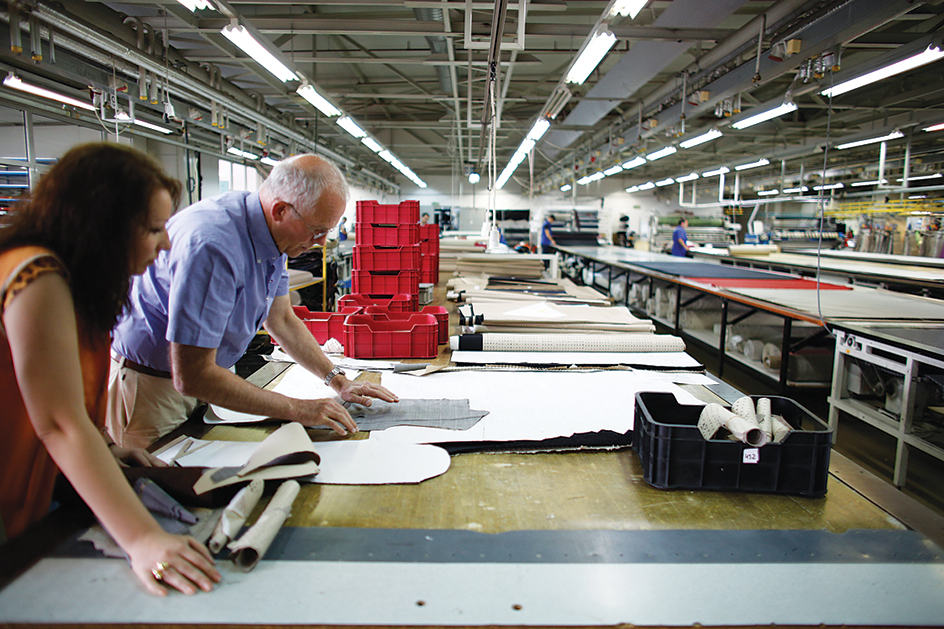
Bulgaria has small deposits of many minerals. The nation mines coal, copper, gypsum, kaolin, lead, limestone, salt, silver, sulfur, and zinc. A nuclear power plant at Kozloduy provides a portion of the country’s electric power. Bulgaria must import most of its fuel from Russia.
Service industries
account for about two-thirds of both Bulgaria’s GDP and its employment. Hotels, restaurants, and shops benefit from the millions of tourists who visit Bulgaria each year. Most of these tourists come from Germany, Greece, Romania, Turkey, and other European countries. Many people are employed by the government or in education or health care. Finance and real estate services are also important to Bulgaria’s economy.
Agriculture
accounts for about 5 percent of both the country’s GDP and its workers. Farmland covers about half of Bulgaria. Most farmland is in the northern and southeastern parts of the country. 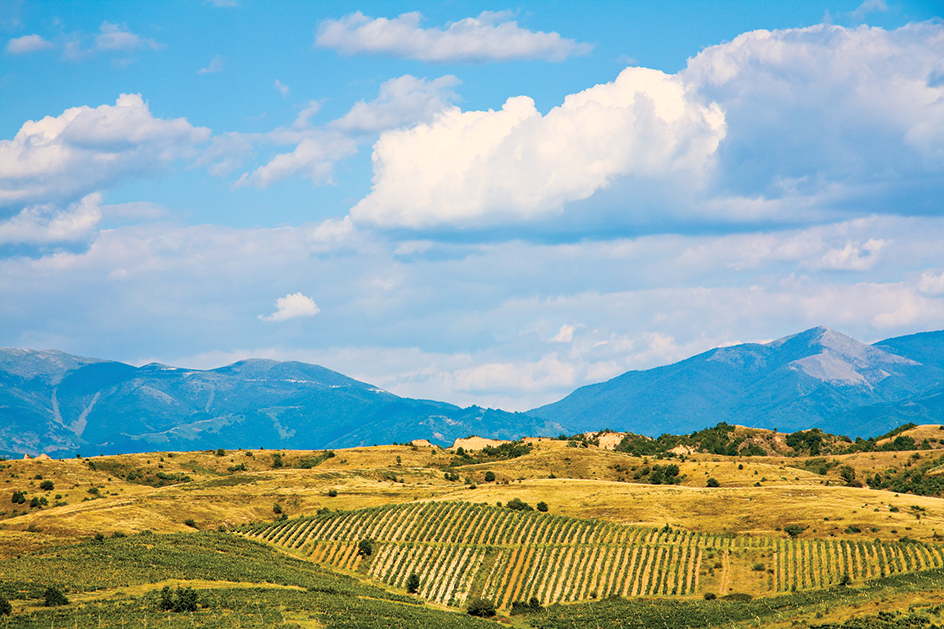
Grain is Bulgaria’s chief farm product. Corn and wheat are the leading grains. Other grains include barley, oats, rice, and rye. Farmers also grow cherries, grapes, potatoes, rapeseed, sunflower seeds, tobacco, and tomatoes. Bulgaria is one of the world’s leading producers of sunflower seeds. Roses are grown for their sweet-smelling oil, which is used to make perfume. Bulgarian farmers raise such livestock as beef and dairy cattle, chickens, goats, pigs, and sheep.
Trade.
Bulgaria’s main trading partners include Germany, Greece, Italy, Romania, Russia, and Turkey. Bulgaria’s chief imports include crude petroleum and natural gas, machinery, metals and ores, and transportation equipment. Its main exports include clothing, copper and copper products, footwear, iron and steel, and petroleum products. Throughout the year, large trade fairs are held in Plovdiv. 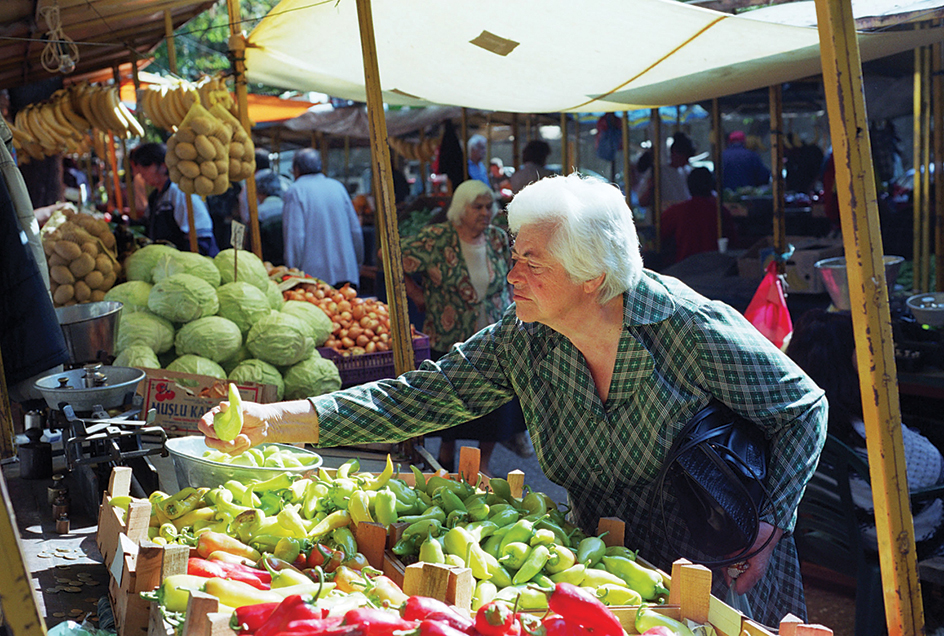
Transportation and communication.
Thousands of miles of railroad track crisscross Bulgaria. The country also has tens of thousands of paved roads. The main airports are in Burgas, Plovdiv, Sofia, and Varna. Ruse is Bulgaria’s chief port on the Danube River, the country’s only important inland waterway. The leading ports on the Black Sea are Burgas and Varna.
Bulgaria’s constitution guarantees freedom of the press. Daily newspapers are published in large cities throughout the country. The Bulgarian News Agency, the nation’s official news agency, provides foreign and national news. Both state-owned and privately owned radio stations and TV networks broadcast in Bulgaria.
History
Early history.
A people called the Thracians established the first civilization in what is now Bulgaria about 3,000 years ago. The region became part of the Roman Empire in the A.D. 40’s. Slavs from what are now southeastern Poland and northwestern Ukraine settled in the territory during the 500’s. In the 600’s, nomadic Bulgar tribes from central Asia migrated to the region. In time, the Bulgars blended with the Slavic people.
The first Bulgarian kingdom
was established in 681. It gradually became the most powerful state in the Balkans. Under Simeon I, who came to the throne in 893, Bulgaria entered a golden age. Simeon brought Albania, Macedonia, Serbia, and some other parts of the Byzantine Empire under Bulgarian influence. Trade, literature, and art flourished. After Simeon died in 927, Bulgaria’s power began to decline. In 1018, the country was conquered by the Byzantine emperor Basil II and became part of the Byzantine Empire.
The second Bulgarian kingdom
was founded in 1186, after Bulgaria regained its independence from Byzantine rule. In the 1200’s, Bulgaria’s economy and culture thrived again, and the country once more became a Balkan power. But invaders from the Ottoman Empire in central Asia began raiding Bulgaria in the early 1300’s. By 1396, they had conquered the country.
Ottoman rule
of Bulgaria lasted more than 500 years. The Ottomans forced their culture on Bulgarian society. They seized Bulgarian lands and other property and heavily taxed the people. The Ottomans killed many Bulgarians who opposed their rule.
The Bulgarians rebelled in the 1590’s, the 1680’s, and the 1730’s. But the Ottomans crushed them each time. From the late 1700’s through the mid-1800’s, Bulgarian patriotism grew. The Ottomans made some social reforms, but the Bulgarians still wanted freedom. They revolted again in 1876 and were brutally put down.
In 1878, during a war between Russia and the Ottoman Empire, Russian troops invaded Bulgaria and defeated the Ottoman army. In March 1878, the Ottomans were forced to sign the Treaty of San Stefano and give up Macedonia and Thrace to Bulgaria. But in July, a meeting of European leaders called the Congress of Berlin replaced the treaty with the Treaty of Berlin. This treaty returned most of the territory to the Ottoman Empire and allowed for limited Bulgarian self-rule. See Berlin, Congress of.
In 1879, Bulgaria adopted a Constitution. Alexander of Battenberg, a German prince, was installed as Bulgaria’s ruler. The next ruler, King Ferdinand, declared Bulgaria’s full independence from the Ottoman Empire in 1908.
The Balkan wars.
In 1912, Bulgaria joined other Balkan states in a war to drive the Ottomans out of Europe. In fighting this war, called the First Balkan War, Bulgaria hoped to regain the territory it lost under the Treaty of Berlin. The Ottoman Empire was easily defeated. However, the victorious countries argued over the division of the lands they had won. In 1913, Bulgaria began the Second Balkan War by attacking Serbia and Greece. It was quickly defeated, and it lost much of the land it had gained during the First Balkan War. See Balkans (The First Balkan War) (The Second Balkan War). 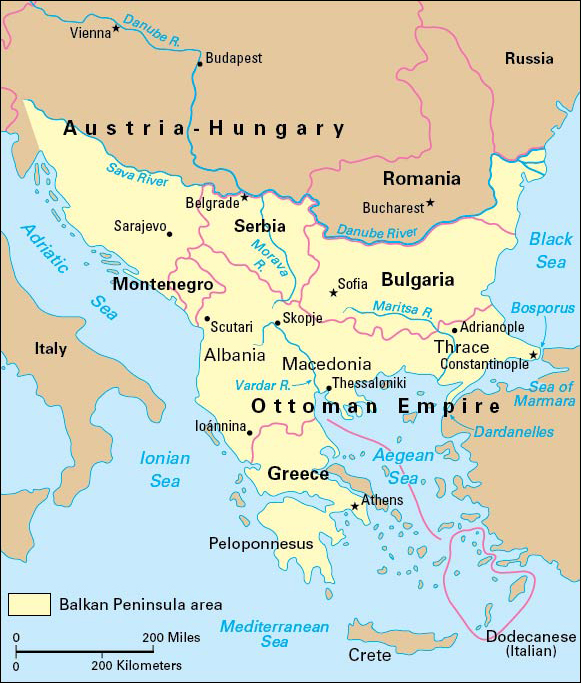
The world wars.
Bulgaria entered World War I (1914-1918) on the side of Germany and the other Central Powers in hope of regaining the territory it lost following the Second Balkan War. The Central Powers were defeated, and Bulgaria lost even more territory. After the war, Bulgaria was torn by political unrest and terrorism as various groups struggled for power.
Bulgaria’s determination to regain its lost territory led it to enter World War II (1939-1945) as an ally of Germany and Italy. During the war, the country was heavily bombed. The Soviet Union invaded Bulgaria on Sept. 8, 1944. (The Soviet Union had been formed in 1922 under Russia’s leadership, and it existed until 1991.) The day after the Soviet invasion, the Fatherland Front, a group of Bulgarian political organizations led by the Communist Party, overthrew the Bulgarian government.
Communist rule.
The Communists did not completely control Bulgaria’s new government, and so they immediately took steps to strengthen their power. They removed non-Communists from the government. People whom they considered to be enemies were killed or sent to labor camps or prisons. Private property was seized, and the freedom of the people was restricted. In 1946, the monarchy was abolished. Georgi Dimitrov, the chief Communist leader, became head of government. In 1947, Bulgaria adopted a Constitution modeled on that of the Soviet Union. By 1948, the Communists had total control of the country. Dimitrov died in 1949. In 1950, Vulko Chervenkov came to power. Industrialization increased under Chervenkov’s rule, but the country’s living standards declined. 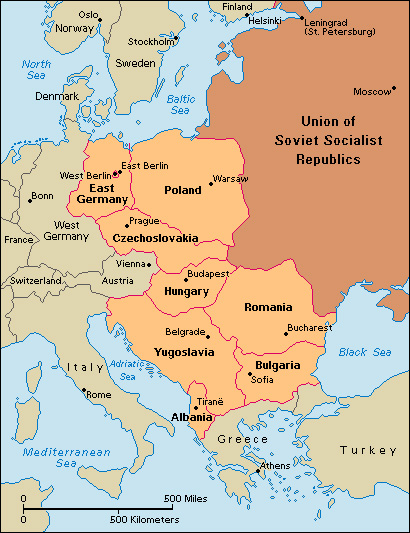
In 1954, Todor Zhivkov became party head. In 1962, he also became head of state. During the early 1960’s, the country still suffered from a severe shortage of basic goods and services. In addition, some members of the government began to resent Soviet influence in Bulgaria. In 1965, Zhivkov survived an attempted military takeover of his government. For the next 20 years, Zhivkov based his rule on sharing power between national and local government authorities, improving living standards, and maintaining close ties with the Soviet Union. He continued policies that restricted the freedom of Bulgaria’s people.
During the late 1980’s, governmental reforms resulted in more freedom for people in the Soviet Union and other Communist countries of Eastern Europe. Influenced by these changes, people in Bulgaria held demonstrations against Zhivkov’s government to demand democracy and greater freedom. A revolt within the Communist Party led by Foreign Minister Petar Mladenov and supported by the Soviet Union forced Zhivkov to resign from office in November 1989. Zhivkov was arrested and later charged with abuse of power and misuse of government property and money. In 1992, Zhivkov was convicted of misusing government money and sentenced to seven years under house arrest. Mladenov was named to fill Zhivkov’s posts of Communist Party chief and head of state. The new government increased some freedoms for Bulgarians.
Political changes.
In January 1990, the Communist Party gave up its monopoly of power and allowed for a multiparty political system. In April, the party changed its name to the Bulgarian Socialist Party (BSP). Also in April, the National Assembly elected Mladenov to the new post of president, which became the country’s most powerful position.
In June 1990, Bulgaria held its first free, multiparty elections in 44 years. The BSP won the majority of seats in a new legislature called the Grand National Assembly. The Union of Democratic Forces (UDF) won the second highest number of seats. In July, protesters claimed that Mladenov had ordered military tanks to put down an antigovernment demonstration the previous December. Mladenov then resigned as president. In August, the Grand National Assembly elected Zhelyu Zhelev of the UDF as president. Zhelev became Bulgaria’s first non-Communist head of state since 1944.
After a new Constitution was adopted in July 1991, the Grand National Assembly was renamed the National Assembly. The Constitution made the prime minister the most powerful government official. New legislative elections were held in October 1991, and a party that had split from the UDF—which was disbanded—won the most seats. This party later also took the name Union of Democratic Forces. Filip Dimitrov, the head of the new UDF, became prime minister. In January 1992, Zhelev was elected president by the people.
Recent developments.
Like many former Communist countries, Bulgaria faced difficulties with the transition to democracy and a market economy. For much of the 1990’s, the nation suffered from corruption, crime, inflation, political instability, strikes, and unemployment. Market reforms eventually lowered unemployment and inflation rates, but Bulgaria remained one of Europe’s poorest nations.
In 2001, the National Movement for Simeon II (NMS), a party led by Bulgaria’s former king, won control of the National Assembly. Simeon’s popularity helped bring the party to power even though he did not run for office. He later accepted the role of prime minister. Simeon had lived in exile during the country’s Communist era.
In 2004, Bulgaria joined the North Atlantic Treaty Organization (NATO). NATO is a military alliance that includes the United States and many European nations. Bulgaria joined the European Union (EU) in 2007. The EU is an organization of European countries that promotes economic and political cooperation among its members. 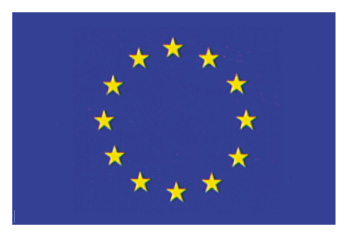
Center-right politician Boiko Borisov (also spelled Borissov) became prime minister in 2009. Borisov’s party, Citizens for European Development of Bulgaria, became known by the acronym GERB for its initials in Bulgarian. Amid continued economic and social problems, former finance minister Plamen Oresharski of the BSP became prime minister in 2013. Borisov returned as prime minister in 2014. In 2016, voters elected BSP candidate Rumen Radev to be Bulgaria’s next president, and Borisov resigned in response. Ognyan Gerdzhikov served as interim prime minister until parliamentary elections returned Borisov to power in 2017. Demonstrators protesting government corruption held rallies opposing Borisov’s government in 2020 and 2021.
Bulgaria experienced a sustained period of political instability in the early 2020’s. Parties were unable to form lasting governing coalitions, and the country held five parliamentary elections between April 2021 and April 2023. In April 2021, President Radev called for new elections after no parties were able to form a coalition. Borisov resigned, and former general Stefan Yanev became prime minister for a caretaker government. In July elections, the There Is Such a People party, known by the initials ITN, won the most votes in parliament. But ITN could not form a majority, and parties again failed to agree to a coalition. In November, a new anticorruption party called We Continue the Change received the most votes for parliament. In the same election, Radev won a second term as president. Kiril Petkov, a co-leader of We Continue the Change, became prime minister in December 2021. Petkov’s coalition collapsed in June 2022, however, and caretaker Prime Minister Galab Donev took office in August. Parties attempted to form a new governing coalition after elections were held in October, but their efforts failed.
In April 2023 elections, GERB received the most votes, followed by an alliance of the anticorruption parties We Continue the Change and Democratic Bulgaria. In May, the two sides agreed to form a coalition in which the head of government would rotate every nine months. The alliance’s Nikolay Denkov became prime minister. Mariya Gabriel of GERB was scheduled to succeed him in early 2024.
